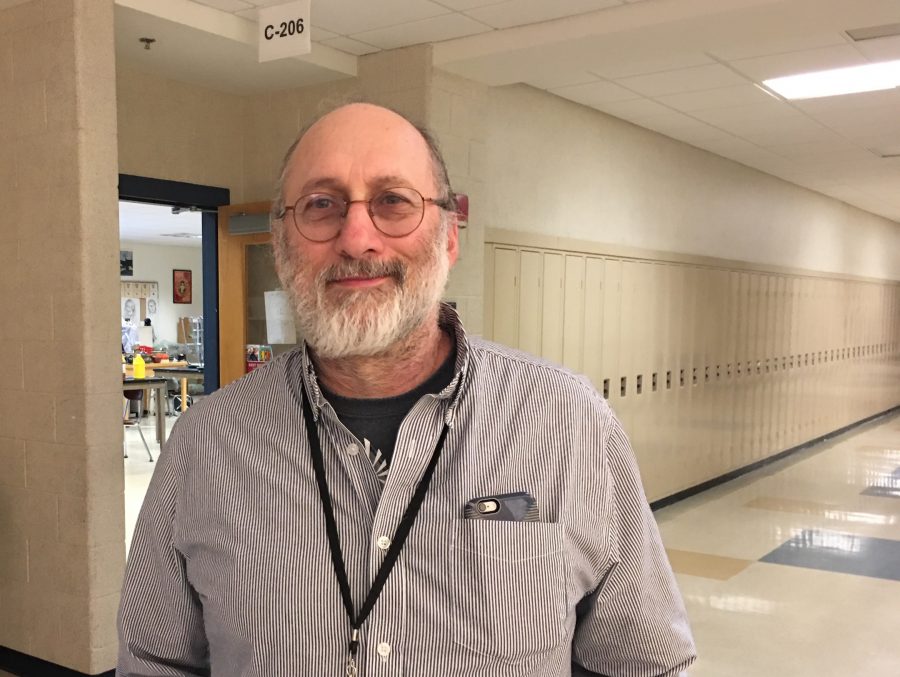Hancin finds passion in painting
Art teacher George Hancin specializes in painting segmented landscapes, and works with oils and watercolors.
December 22, 2016
Art teacher George Hancin is not only an avid painter who creates segmented landscapes in oil paints, but he also takes his classes out of state on field trips to museums to influence students through the many exhibits.
Hancin, a graduate of Kent State University and the School of the Museum of Fine Arts in Boston, has taught in many places, ranging from rural elementary schools and high schools to the Boston Museum of Fine Arts. He also has had work featured in the Bromfield Art Gallery, as well as on his personal website.
One of the most memorable exhibitions Hancin brought his students to see on a New York field trip were of sculptors Peter Fischli and David Weiss’s “How to Work Better.”
“That show at the Guggenheim was kind of crazy, with [Fischli and Weiss] who just take clay, and just make them into different little comics,” Hancin said.
Hancin specializes in segmented landscape paintings, but he does not limit himself to just painting.
“I like to paint with oils, I like to do water colors, I like to draw, I like pottery, I like to do all those things,” Hancin said.
“I like to go out to different places, around lakes and neighborhoods and parks, pick a scene in that park or lake or something and select a certain little section of it and then do a painting of it,” Hancin said.
Fellow art teacher Michelle Sheppard appreciates Hancin’s dedication to painting and his unique style.
“If I’m teaching [students] in Art 1, and they’re really into painting or drawing, I love being like, ‘Are you gonna take Art 2? If you are, then you’re going to work with Mr. Hancin, and he’s a true painter,’” Sheppard said.
“His brush strokes capture the essence of the scene and the important parts and I love seeing, like, on a town common, what floats up to the top for him that he’s chosen to just place there carefully with those brush strokes,” Sheppard said.










Desiree Aselbekian • Jan 3, 2017 at 4:01 pm
I never took an art elective during my years at ARHS, but I certainly know a great piece of art when I see it. I fell in love with one of Mr. Hancin’s oil landscapes after visiting a 2006 or 2007 opening at the Southborough Art Center. Luckily for me, my Mom went back in and bought the painting for me. It fits perfectly in my upstairs common area, and I get to admire it every morning as I walk by. It’s beautiful.
Thanks, Mr. Hancin, for your art and talent.
Desiree Aselbekian
Class of 1999